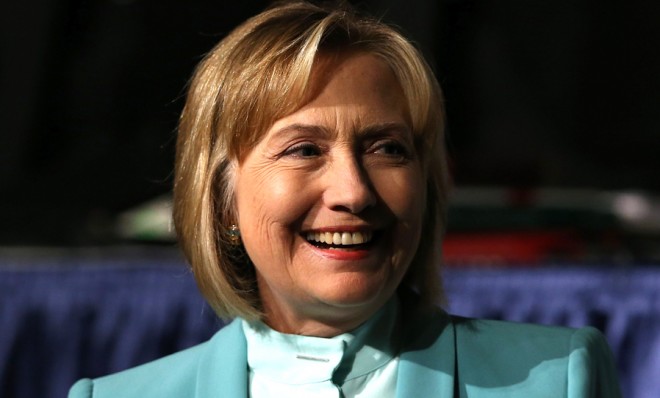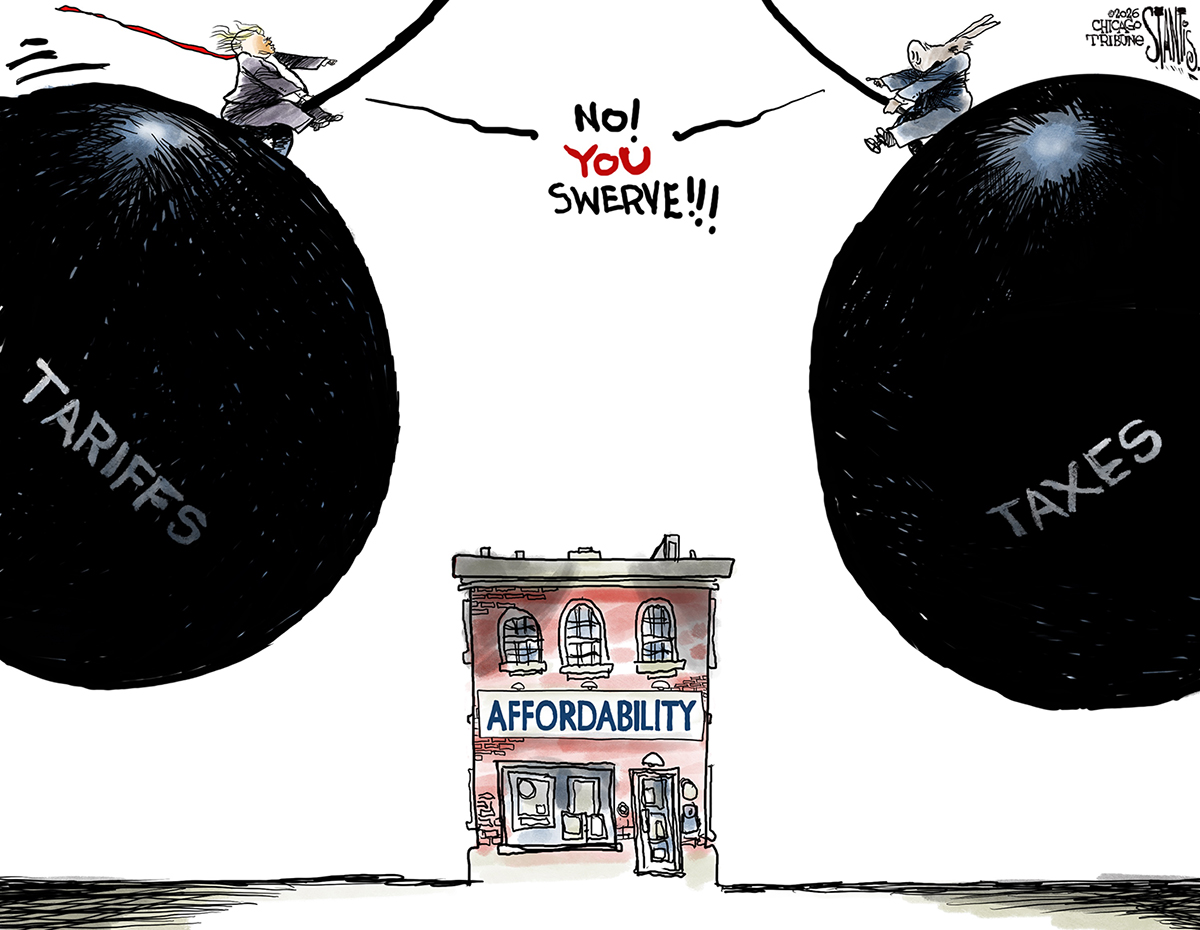Why Hillary Clinton is going after voter ID laws
The former (and future?) presidential candidate just made her most overtly political speech since stepping down as the nation's top diplomat


Former Secretary of State Hillary Clinton ended a self-imposed political hiatus on Monday, slamming Republican-backed voter ID laws in a biting speech in San Francisco.
Clinton said the Supreme Court in June had done serious damage with its landmark Voting Rights Act ruling, which cleared the way for states with a history of discrimination to tighten voting laws without federal approval. She also denounced voter ID laws pushed through by state legislatures controlled by the GOP, saying they were being justified as tools to fight the "phantom epidemic of voter fraud," but really just made it harder for minorities and the poor to exercise their voting rights. She referred to North Carolina's new election rules, which were signed into law by Republican Gov. Pat McCrory this week, as the "greatest hits of voter suppression."
"Not every obstacle is related to race, but anyone who says that racial discrimination is no longer a problem in American elections must not be paying attention," Clinton said.
The Week
Escape your echo chamber. Get the facts behind the news, plus analysis from multiple perspectives.

Sign up for The Week's Free Newsletters
From our morning news briefing to a weekly Good News Newsletter, get the best of The Week delivered directly to your inbox.
From our morning news briefing to a weekly Good News Newsletter, get the best of The Week delivered directly to your inbox.
Of course, this is hardly the first speech Clinton has given since she left the Obama administration. However, this address featured an overtly partisan tone on a hot-button issue, prompting analysts to brand her remarks as the strongest evidence to date that Clinton is preparing to launch another bid for the presidency in 2016.
The question is: Why did she choose this issue?
Analysts say that Clinton has the Democratic Party's centrists in her pocket, and that her sharp words on voting rights will appeal to a progressive base that has long been wary of the Clintons, helping insulate her against a challenge from the left.
And while she is a clear front-runner at this early stage, she needs to step into the spotlight now and again to remind voters of her presence. Sean Sullivan at The Washington Post says Clinton "can afford to keep a low public profile more than the other potential 2016ers. But she simply can't be a non-factor on the big issues of the day."
A free daily email with the biggest news stories of the day – and the best features from TheWeek.com
Voting rights, Sullivan says, is an ideal place for Clinton to start. It will get her into the game on an issue that has galvanized activists in many states, including election battlegrounds such as North Carolina and Florida. "It's also a topic over which Clinton could begin to make her case as the heir apparent to Obama and try to persuade parts of his coalition — minorities and liberals in particular — to back her," Sullivan adds.
Expect more from Clinton in the coming weeks, particularly on the subjects of homeland security and foreign policy. Here's Traci G. Lee at MSNBC on Clinton's upcoming schedule:
Clinton, who is seen as the frontrunner for the 2016 Democratic presidential nomination, said she plans to speak in September about the "balance and transparency necessary in our national security policies," then later in the fall "will address implications on these issues for [America’s] global leadership and moral standing around the world." [MSNBC]
The Obama administration has been heavily criticized by liberals for the National Security Agency's broad surveillance program, which means Clinton has another opportunity here to shore up support on the left — or toe the centrist line.
As for the U.S.'s "moral standing" in the world, Obama has been pilloried by conservatives for taking what could be called a relativist approach to foreign policy, in stark opposition to George W. Bush's more Manichaean view of world affairs. Again: Another opportunity for Clinton to position herself on a big issue in a potential run-up to 2016. Should be an interesting September in the world of Democratic politics.
Harold Maass is a contributing editor at The Week. He has been writing for The Week since the 2001 debut of the U.S. print edition and served as editor of TheWeek.com when it launched in 2008. Harold started his career as a newspaper reporter in South Florida and Haiti. He has previously worked for a variety of news outlets, including The Miami Herald, ABC News and Fox News, and for several years wrote a daily roundup of financial news for The Week and Yahoo Finance.
-
 Political cartoons for January 18
Political cartoons for January 18Cartoons Sunday’s political cartoons include cost of living, endless supply of greed, and more
-
 Exploring ancient forests on three continents
Exploring ancient forests on three continentsThe Week Recommends Reconnecting with historic nature across the world
-
 How oil tankers have been weaponised
How oil tankers have been weaponisedThe Explainer The seizure of a Russian tanker in the Atlantic last week has drawn attention to the country’s clandestine shipping network
-
 The billionaires’ wealth tax: a catastrophe for California?
The billionaires’ wealth tax: a catastrophe for California?Talking Point Peter Thiel and Larry Page preparing to change state residency
-
 Bari Weiss’ ‘60 Minutes’ scandal is about more than one report
Bari Weiss’ ‘60 Minutes’ scandal is about more than one reportIN THE SPOTLIGHT By blocking an approved segment on a controversial prison holding US deportees in El Salvador, the editor-in-chief of CBS News has become the main story
-
 Has Zohran Mamdani shown the Democrats how to win again?
Has Zohran Mamdani shown the Democrats how to win again?Today’s Big Question New York City mayoral election touted as victory for left-wing populists but moderate centrist wins elsewhere present more complex path for Democratic Party
-
 Millions turn out for anti-Trump ‘No Kings’ rallies
Millions turn out for anti-Trump ‘No Kings’ ralliesSpeed Read An estimated 7 million people participated, 2 million more than at the first ‘No Kings’ protest in June
-
 Ghislaine Maxwell: angling for a Trump pardon
Ghislaine Maxwell: angling for a Trump pardonTalking Point Convicted sex trafficker's testimony could shed new light on president's links to Jeffrey Epstein
-
 The last words and final moments of 40 presidents
The last words and final moments of 40 presidentsThe Explainer Some are eloquent quotes worthy of the holders of the highest office in the nation, and others... aren't
-
 The JFK files: the truth at last?
The JFK files: the truth at last?In The Spotlight More than 64,000 previously classified documents relating the 1963 assassination of John F. Kennedy have been released by the Trump administration
-
 'Seriously, not literally': how should the world take Donald Trump?
'Seriously, not literally': how should the world take Donald Trump?Today's big question White House rhetoric and reality look likely to become increasingly blurred
